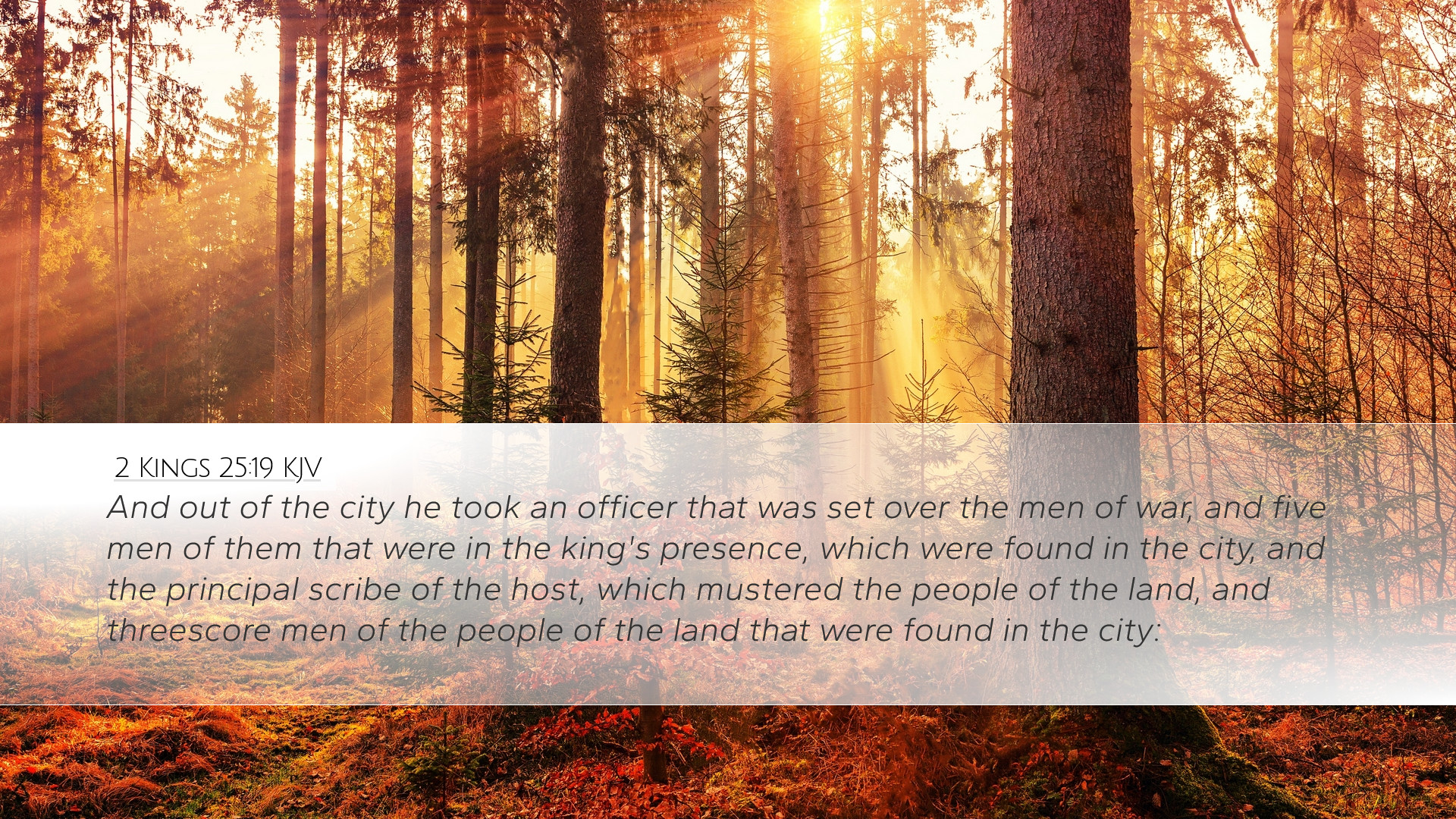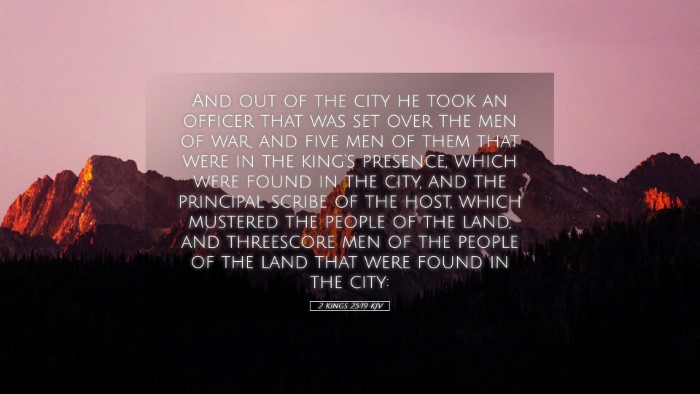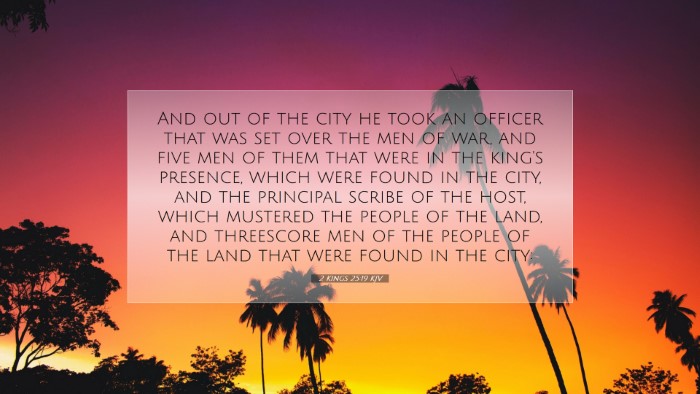Commentary on 2 Kings 25:19
2 Kings 25:19 states:
“And he took a captain of the guard, and a chief man, and an officer that was set over the men of war, and five men of them that were in the king’s presence, which were found in the city, and the principal scribe of the host, which mustered the people of the land, and threescore men of the people of the land that were found in the city, and brought them to the king of Babylon to Riblah.”
Contextual Overview
This verse is situated within the broader narrative of the Babylonian siege of Jerusalem, detailing the final days of the Southern Kingdom of Judah. This chapter recounts the fall of Jerusalem, the destruction of the temple, and the captivity of the people. It highlights the deep implications of national sin, divine judgment, and the consequence of failing to heed prophetic warnings.
Commentary Insights
Insights from prominent public domain commentators shed light on various aspects of this verse:
Matthew Henry’s Commentary
Matthew Henry emphasizes the stark reality of judgment as he interprets the actions of the Babylonian captain. He notes that the “captains,” “chief men,” and other officials brought before the king of Babylon symbolize the complete overthrow of order and authority in Judah.
- Consequences of Disobedience: Henry discusses how these officials represent the leadership that led the nation into disobedience—thus, their capture signifies a divine retribution that was inevitable and deserved.
- Prophetic Fulfillment: He points out that this event fulfills the prophetic warnings issued by Jeremiah and others regarding the impending judgment on Israel, thus showing God’s sovereignty over history.
Albert Barnes’ Notes on the Bible
Albert Barnes provides a detailed analysis of the individuals captured, focusing on their roles:
- Military Leadership: Barnes notes that the mention of a “captain of the guard” indicates the structured military hierarchy that had initially served the king of Judah, highlighting the transition from strength to vulnerability.
- Scribe's Role: The inclusion of the principal scribe suggests the importance of record-keeping and administrative oversight in society. It reflects a loss both of authority and civilization itself as the scribes were often the bearers of the law and culture.
Furthermore, Barnes emphasizes that this act of capture was not just a military victory but also a theological statement about God’s judgment against Israel’s sins.
Adam Clarke’s Commentary
Adam Clarke offers insights into the significance of the number and identity of those taken captive:
- Symbolism of Captivity: Clarke explains that the number of individuals taken—particularly the officials—symbolizes the totality of God’s judgment. It underscores the utter defeat of Jerusalem’s leadership and the collapse of its society.
- Theological Implications: He comments on the permanence of their captivity as reflective of the long-lasting consequences sin can have on a society and its leaders.
Moreover, Clarke highlights that the capturing of these leaders not only destroyed the present order but also placed a strong emphasis on the need for true repentance and alignment with God's will.
Applications for Today
This verse and its commentary provide significant lessons for contemporary readers, particularly for pastors, students, and theologians:
- Leadership Accountability: The leadership of a nation or church holds profound weight in spiritual matters. Leaders must have a steadfast commitment to God’s Word to avoid national and spiritual calamity.
- The Call to Repentance: The history within 2 Kings serves as a reminder of the need for national and personal repentance; neglecting this can lead to dire consequences.
- Sovereignty of God: The narrative demonstrates God's sovereign control over nations and history. Believers today can take comfort in knowing that God is in control, even during tumultuous times.
- Reflection on Cultural Collapse: As we observe societal shifts and moral downturns today, this passage calls for serious introspection about the spiritual state of our communities.
Conclusion
In summary, 2 Kings 25:19 acts as a poignant reminder of the consequences of disobedience to God’s commands. Through the insights gained from prominent commentators, we see the deep layers of meaning related to leadership, judgment, and the overall sovereignty of God over history and nations. As modern readers engage with this text, the emphasis on repentance, accountability, and the acknowledgment of divine sovereignty remains pertinent.


